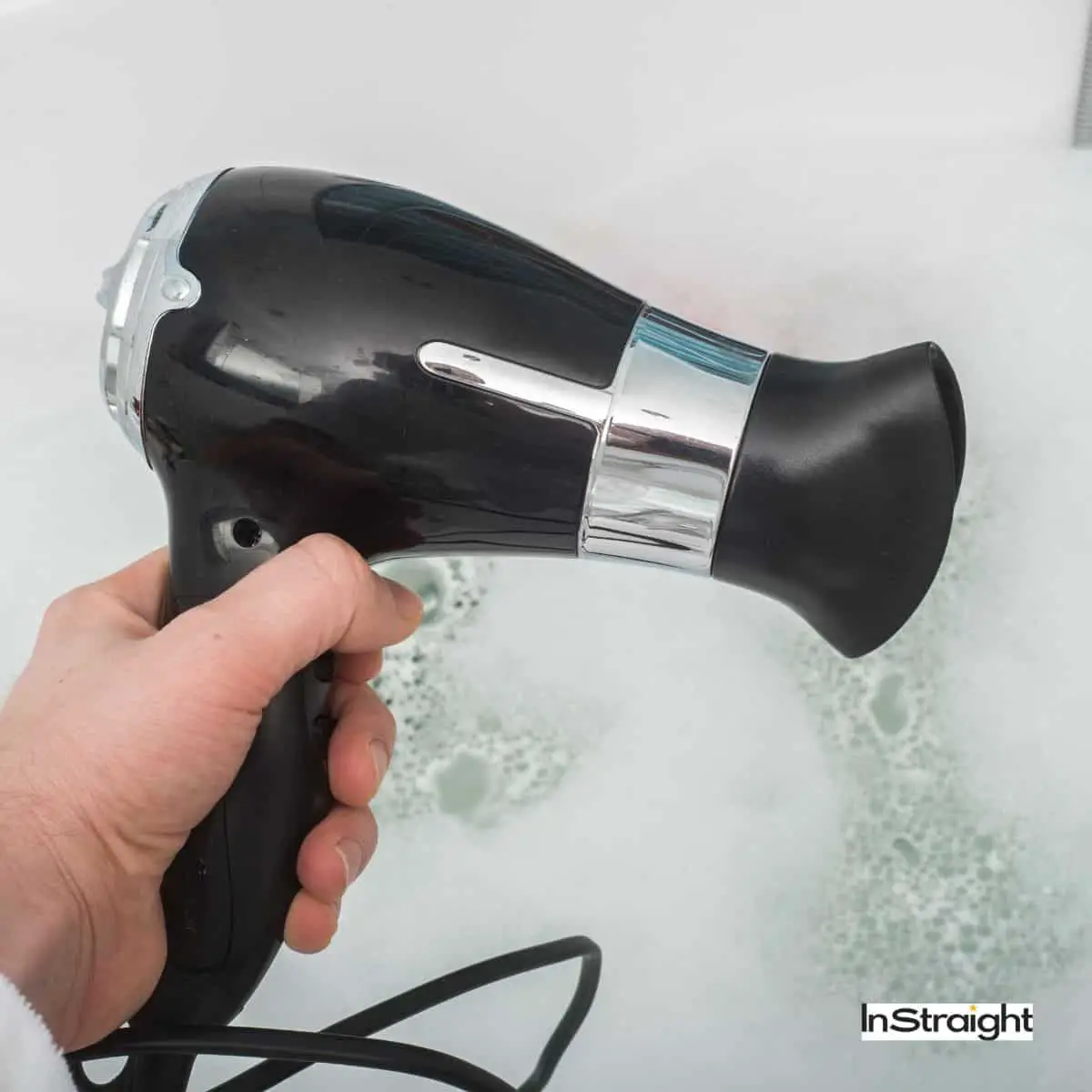Is it really dangerous to use a hair dryer in the bathtub? This is a question that many people have asked, and there are conflicting opinions on the matter.
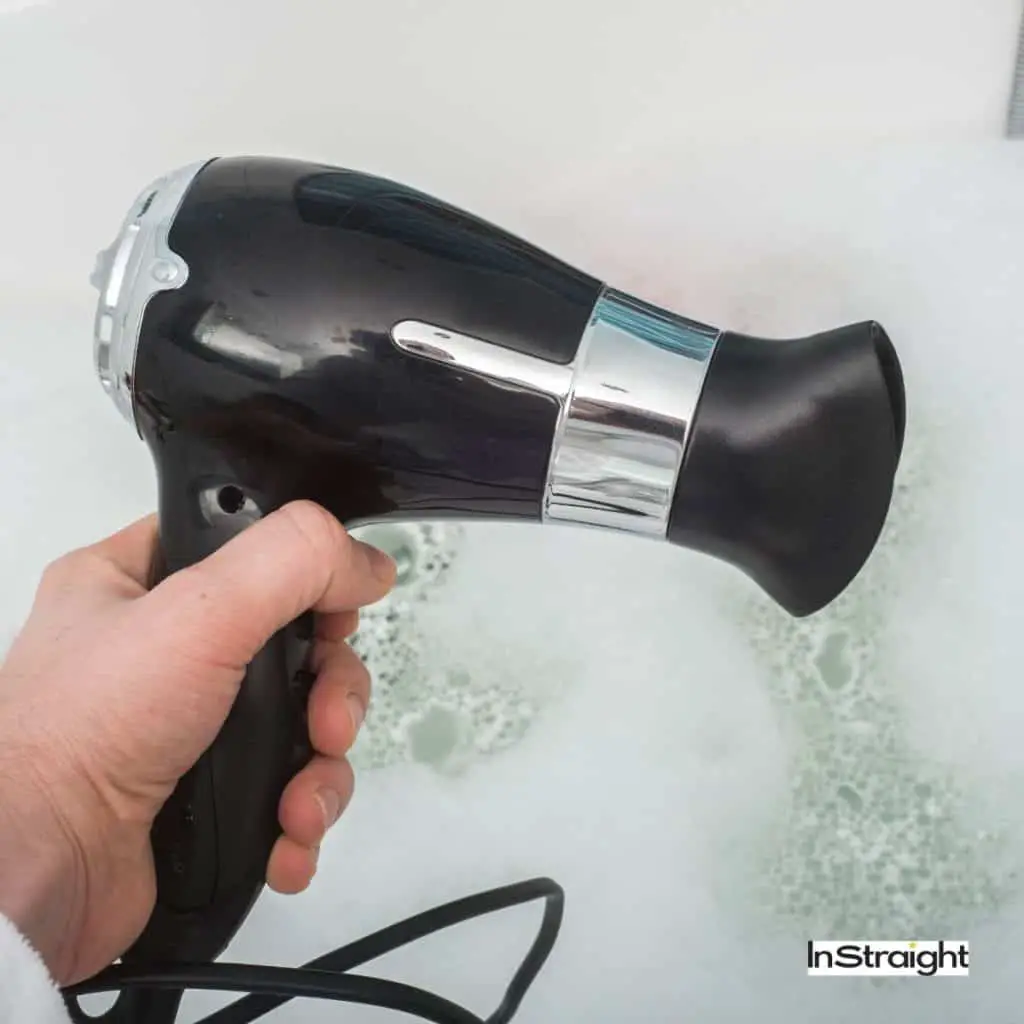
Some say it is perfectly safe to use a hair dryer in the bathtub as long as you take proper precautions, while others believe it is extremely dangerous and should be avoided at all costs.
So, what is the truth? Can a hair dryer in the bathtub kill you?
Can You get electrocuted in the bath?
For many of us, taking a relaxing bath is the perfect way to unwind after a long day. But did you know that there’s actually a danger of electrocuting yourself if you’re not careful?

In a few terrifying incidents, people have been electrocuted by taking a relaxing bath or shower.
According to Rick Coons, CEO at Indiana Electric Cooperatives, “Bathrooms are the most dangerous rooms in homes because of the large number of appliances used and multiple water sources present.
Not following proper rules regarding electricity can lead to serious injury or even death.”
Each year, more than 30,000 non-fatal shocks occur, according to the Electrical Safety Foundation International [1]. According to the organization, 60 people are electrocuted each year due to consumer products such as small appliances, power tools, and lighting equipment.
If you’re using your hair dryer in the tub, you could easily end up with an electric shock or even worse!
READ MORE: How to Stop Hair Dryer Cable Twisting
What actually happens when you drop a hairdryer in the bath
When electrical equipment falls into water, it can interact with the water, causing it to conduct electricity. If you come into touch with water, this voltage might be passed to your body.
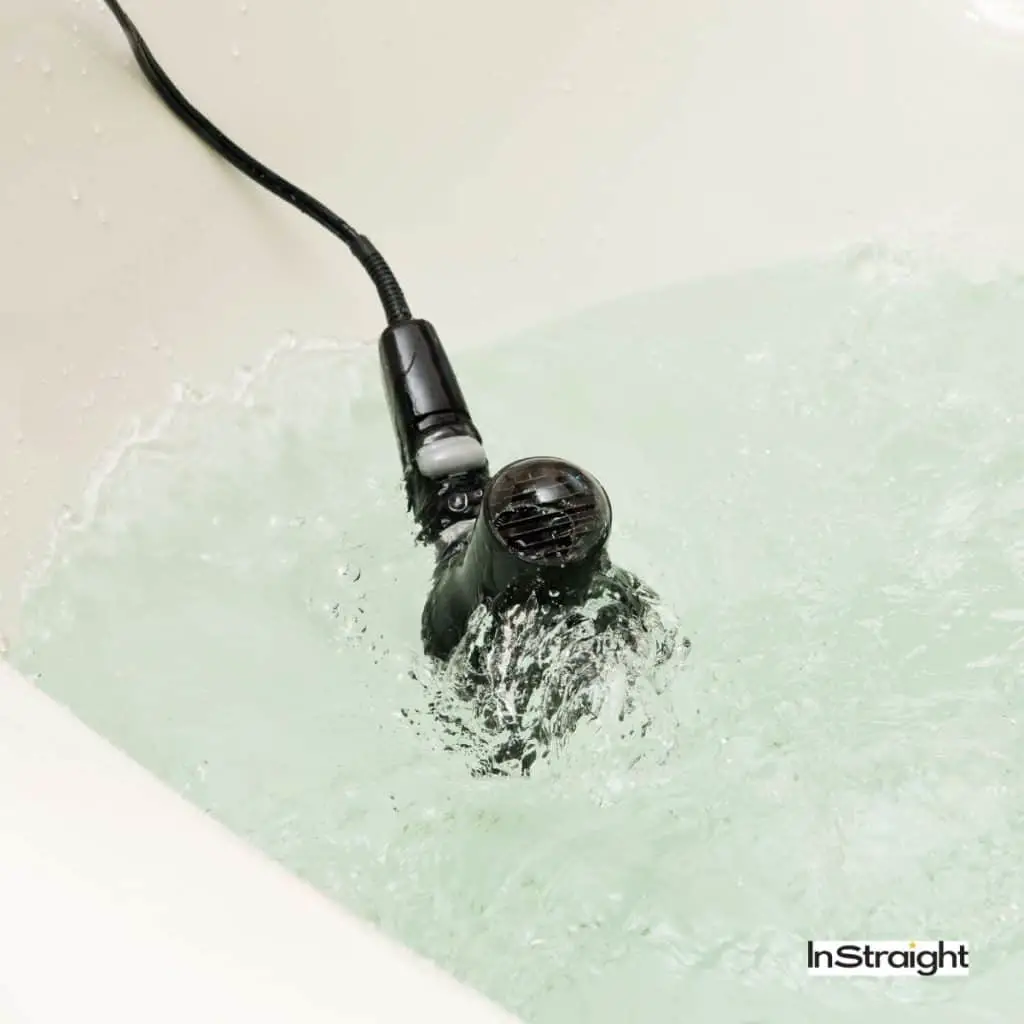
When the dryer falls into the somewhat conductive bathwater, a “ground fault” is formed because the metal drain pipe for the bathtub functions as a ground route.
If your body is submerged in the water between the dryer and the drain, enough current may run through your body to stop your heart.
Only when the human body completes an electrical circuit does one become electrocuted. Unless one is bathing in distilled water, bath water is more conductive than the human body, and the current would flow through the water from the hair dryer to the ground.
However, modern hair dryers include a GFCI near the plug end of the power cord that will shut off the power to the hairdryer in the event of a “short,” also known as a ground fault, that passes through you.
These were required due to the number of people who died after using hair dryers in bathtubs/showers.
Since 1975, most areas of the United States have mandated ground fault circuit interrupter (GFCI) outlets in bathrooms [2].
A GFCI is a type of circuit breaker that cuts off electricity when it detects an imbalance between the incoming and outgoing current. These circuit breakers are designed to prevent electrical shocks from occurring.
According to the National Electric Code, a restroom must have at least one GFCI-protected outlet. Each bathroom should have two or three GFCI-protected outlets.
Can you still use a hairdryer after it gets wet? Find out the answer in this video!
What To Do If Your Hair Dryer Falls In Water?
If your hair dryer falls in the water, don’t panic! There are a few things you can do to salvage your hair dryer. Avoid touching the dryer while still plugged in water to avoid electrocution.
Secondly, drain the water from the bath. Remove the plug from the drain hole and remove the drain cover. Make sure to use gloves.
The next step is to discard the dryer. An electrical device that has been exposed to water cannot be guaranteed to be safe. Do not be tempted to use it no matter how good it looks on the outside.
Here are some hair dryer alternatives.
What are the odds of surviving electric injuries?
Usually, minor electric shocks, such as those caused by tiny domestic equipment usually do not need medical attention but quick first aid.
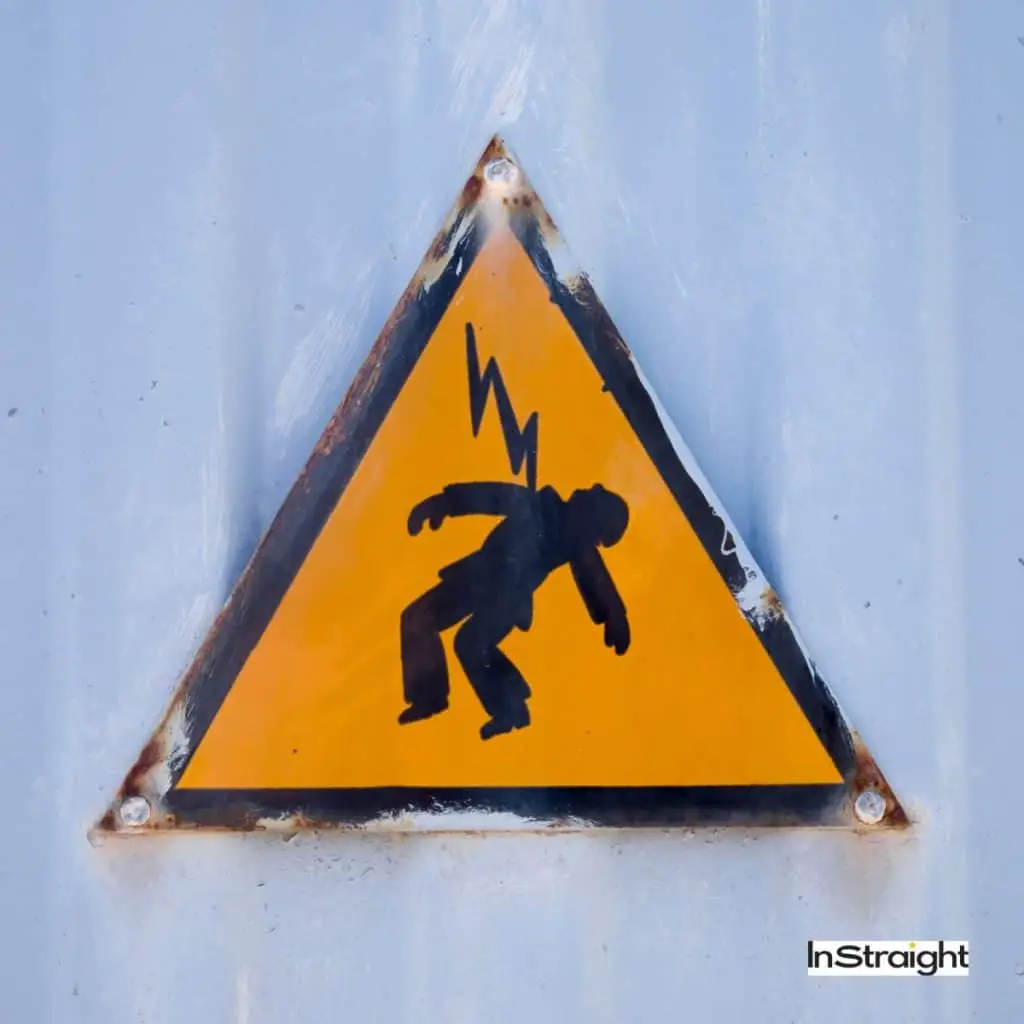
But if someone has been electrocuted, you should contact a doctor.
In any case, if you encounter someone who has had an electric injury, here is how you can be of help:
- Do not touch the individual since they may have come into contact with an electrical source.
- Call 911.
- Turn off the power source if it is safe to do so. Make sure to use a nonconductor like wood or plastic.
- Administer CPR if the person has no pulse.
- If the person has been burnt do not try to remove the clothes or try to cover them with blankets.
Bathroom Safety Tips
The bathroom is one of the busiest places in a home and can also be one of the most dangerous.
Water and electricity are sworn enemies, and the bathroom has both. It’s therefore imperative to take safety precautions to avoid fatal accidents.
Here are some vital tips to keep in mind.
- Use only approved hair dryers.
- Before utilizing tiny electric gadgets, thoroughly dry your hands.
- Test your GFCI outlets regularly to ensure they are operational.
- To keep your bathroom warm, use central heating rather than an electric heater.
- Light fixtures that might catch fire if water or steam exposure should be covered.
- Unplug all non-essential electrical appliances.
- Turn off the power when installing a GFCI outlet and use tools with insulated handles.
This video shows some more tips.
In Conclusion
Hair dryers are small devices that require proper care and maintenance. They are very useful for drying wet hair quickly.
But they can cause serious damage if used improperly. So always follow these simple rules to ensure you get the best out of your hair dryer.
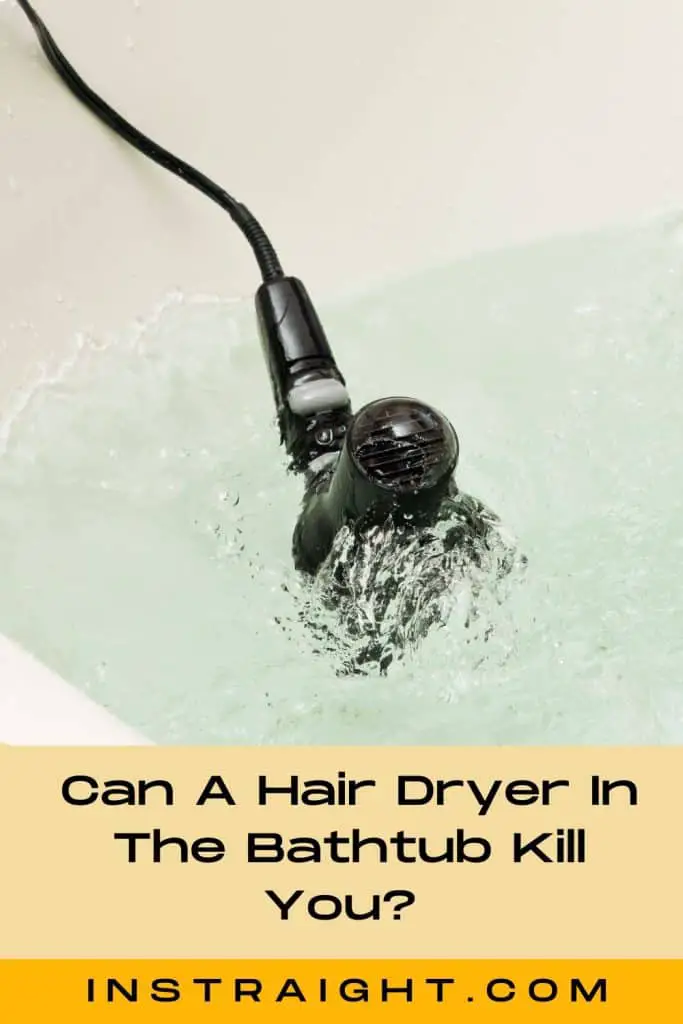
Resources
- 1. Alarming Statistics. Electrical Contractor Magazine. https://www.ecmag.com/section/safety/alarming-statistics
- 2. WHAT IS a GFCI? https://www.cpsc.gov/s3fs-public/099_0.pdf
- About the Author
- Latest Posts
Sylvia is one of the most joyful people you’ll ever meet. She is a high advocate of self-love and encourages women to take care of themselves both mentally and physically. She loves girly talks especially salon talks (a little gossip doesn’t hurt) and spends most of her free time on skincare or hair care. You can find more about here HERE. Find her on LINKEDIN
